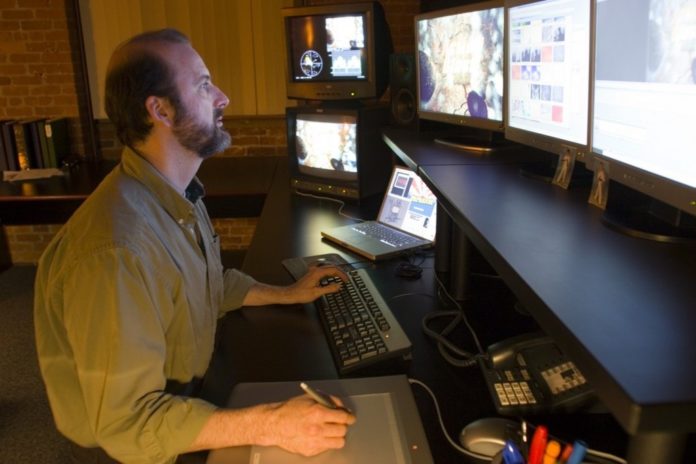
Amid mixed reviews of the state’s motion picture production tax credit, a few Rhode Island-based companies are reaping the benefits and using them to create new permanent jobs.
Tango Pix, a Providence company specializing in high-definition TV production and digital media, has an application pending for about $175,000 in tax credits, subject to approval by the R.I. Film and Television Office. Last year, expecting the credits, the company hired three new employees.
Curt Worden, Tango Pix president and executive producer, said the opportunity to get tax credits “made us more comfortable hiring new employees and adding additional service capabilities to our facility.”
That investment, in turn, “makes us more attractive to other clients and therefore stimulates more sales for our company.”
Rhode Island offers a 25-percent tax credit on TV and film productions for which more than $300,000 is spent in the state. Tango Pix’
application involves “Action Blast!” – an hour-long TV show the company produced for Hasbro Inc.
For the show, which involves live action and animation, Tango Pix not only hired extra staff, but it also engaged 30 local freelancers.
There are plans to do more with the show, but they are on hold for now, Worden said.
Steven Feinberg, director of the Film and Television Office, said Tango Pix’ new hires and freelance contracts are first steps toward building the kind of industry infrastructure he believes the tax credits could help create in the state.
But in a recent joint analysis of the credits, the Poverty Institute at Rhode Island College and the Rhode Island Public Expenditure Council said one of the biggest problems is that they are not creating permanent jobs.
Gary S. Sasse, executive director of RIPEC, said out-of-state production companies purchase goods and services while in Rhode Island, but when they leave, they take the funds generated from the tax credits with them and can invest them elsewhere.
“Taxpayers don’t have much to show for it,” he said.
Ellen Frank, senior economist for the Poverty Institute, said the credit should be reexamined.
“There’s nothing wrong with the tax credit per se,” she said. “It just should be subjected to the same scrutiny that other budget items face.”
She said the $25 million per year could be put to better use in creating jobs, especially if it were invested in work force development and training.
But Feinberg said he hopes the state will hold on to the tax credits and let them continue to work at attracting more companies and jobs.
He said he knows of four production-related companies that will be moving to Rhode Island this year.
In addition, he’s been discussing with Hasbro the possibility of building a studio in Rhode Island.
“Hasbro has been making decisions to keep productions in our state because of the state’s investment in the state,” Feinberg said.
Hasbro did not respond to multiple requests for comment for this story.
Providence Pictures also supports the tax credits. The 10-year-old documentary television production company based in Providence last year received tax credits for a series it produced for the “Nova”
science program on PBS.
Though Providence Pictures has managed to survive without the tax credit for nine years, the credit has enabled it to hire a new associate producer, said Gary Glassman, executive director.
“And we were able to invest in additional staff to create a new international co-production that will be a business model for our future growth,” he said.











